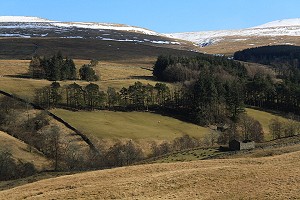
Climate change will be put under the spotlight in a new section of the Yorkshire Dales National Park Authority (YDNPA) website being launched next week.

The new section explains the potential impact of climate change on the fragile landscape of the National Park. The launch coincides with national Climate Week, which runs from March 21 to 27 and aims to increase awareness of the global problem and ways we can all help to minimise it.
'The special qualities of the National Park make it a national treasure in its own right, but it can also be of significant benefit to the nation in tackling the effects of climate change as an absorber of carbon through its trees, soils and peatland' explain the YDNPA on their new web pages.
According to the UK Climate Impacts Programme (2009) the climate in the Yorkshire Dales over the next century is likely to become generally warmer and wetter in winter and hotter and drier in summer, and extreme events like storms and heat waves could happen more often and with increased severity. As well as having direct impacts on the natural environment of the National Park, these changes will also affect communities and the local economy.
Gary Smith, the YDNPA's Head of Conservation and Policy, said 'Climate change is something that is starting to affect us all and will have particular implications for areas with a sensitive ecology like this National Park. The new section of the Authority's website explains what the effects are likely to be. It also showcases some of the positive ways in which people in the National Park are already taking action to help to mitigate those effects.'
'The website shows examples of different types of renewable energy that have been installed in the National Park, and provides links to a wealth of information and potential sources of funding. We hope it will inspire other residents and visitors to do their bit individually and collectively to protect ...the National Park for future generations.'


Comments